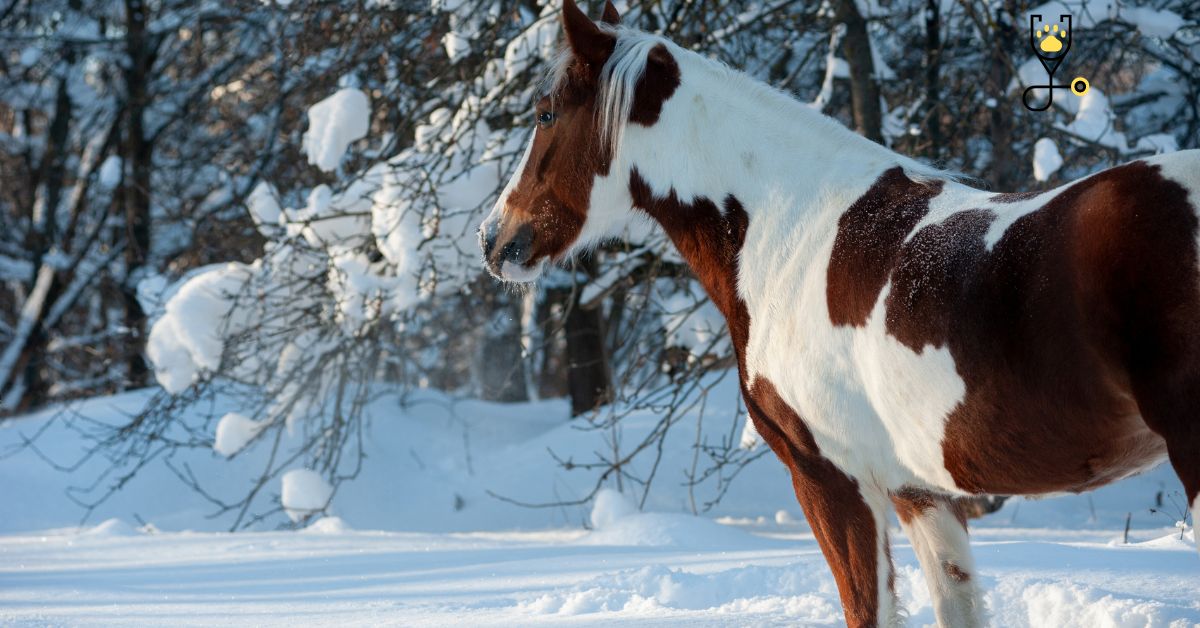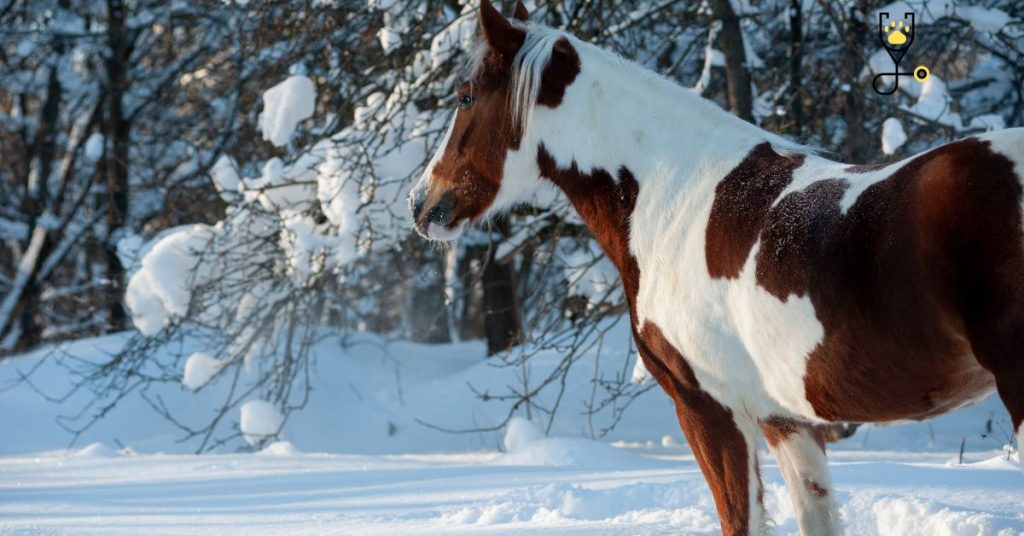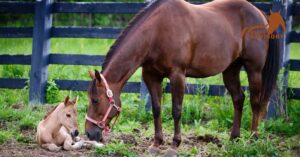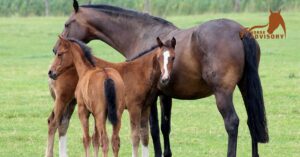As winter creeps in, we need to start thinking about how to prepare our horses and ponies for the colder weather. There are many things you can do to make sure they stay healthy and happy during the winter months. In this post, we will discuss 16 different winter care tips and tricks to help you keep your equine friends healthy, safe, and warm. Moreover, we’ll discuss:
Things to Consider Before Winter
1. Ensure your horse or pony is up-to-date on vaccinations and deworming – this will help prevent disease which can be especially serious in cold weather.
2. Regularly groom, clip (if necessary), and exercise your horse to keep it at a healthy weight throughout the winter months.
3. Make sure you have adequate shelter for your animals; ideally, a three-sided shed or stable with good ventilation and access to hay, water, and bedding.
4. Monitor the temperature of their environment regularly; if possible, check air quality to ensure there are no mold spores in the barn or stable which could cause respiratory problems for your horses.
5. Consider investing in weather-proof clothing for your horses such as blankets, rugs, and fly masks.
6. Make sure there is plenty of hay available to provide nourishment during the winter months – ideally, you should have a supply that will last at least until spring.
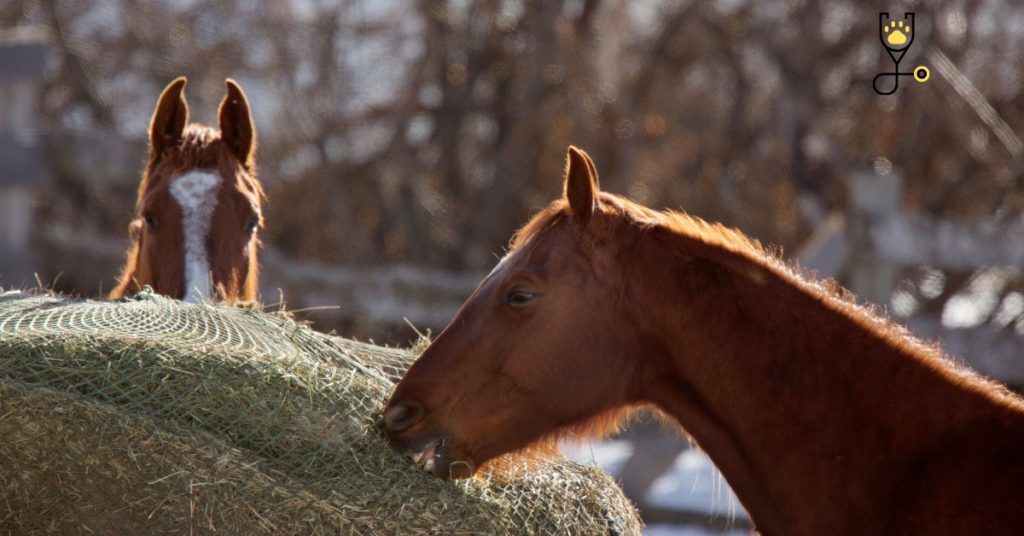
7. Check all fencing regularly to make sure it’s secure; weak and broken fences can be dangerous for horses and ponies.
8. Monitor your horse or pony’s health carefully; look out for signs of illness or injury which can be more serious in cold weather conditions.
1. Blanketing and Rugging Up
Even if your horse has a thick winter coat, you should still consider blanketing him or her. Blankets provide an extra layer of warmth and help to protect against wet conditions. Be sure to use the proper size and fit for maximum comfort and protection.
2. Adding Extra Layers of Bedding
Give your horse a comfortable bed to sleep on in the wintertime and add extra layers of bedding for warmth. You can use hay, straw, or wood shavings as additional insulation against cold weather.
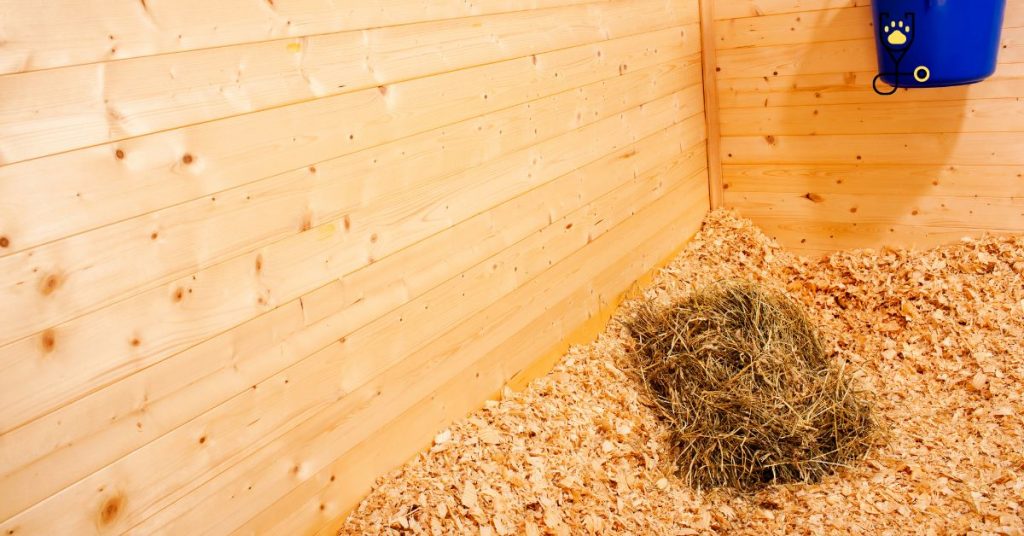
3. Grooming Regularly
Not only will regular grooming keep your horse’s coat looking its best, but it can also help to reduce the risk of skin irritations or infections. Additionally, regular grooming will keep your horse comfortable and warm during cold winter days.
4. Adequate Feeding
A healthy diet is essential for keeping your horse in top condition. Make sure you are providing your horse with enough calories and nutrition to keep them warm during the winter months.
5. Providing Shelter
Provide your horse with shelter from the elements when possible. This could be anything from a barn or stable to an outdoor run-in shed. Make sure there is plenty of hay and bedding available in order to provide warmth and comfort.

6. Offering Salt and Mineral Blocks
Provide your horse with salt and mineral blocks, as these can help to replenish electrolytes lost through sweat and keep them healthy during the winter months.
7. Providing Warm Water
During cold weather, horses need access to warm water in order to stay hydrated and comfortable. Make sure you provide heated buckets or troughs when possible so that your horse can get the water it needs without having to consume icy-cold liquid.
8. Growing Winter Forage
Planting winter forage such as ryegrass or oats can be a great way to provide nutritional options for your horses during the colder months of the year. This is particularly important for those who are on pasture.
9. Monitoring the Weather
Make sure you are monitoring local weather forecasts and take into account wind chill factors when making decisions about your horse’s care. It is important to be aware of changes in temperature so that you can make necessary adjustments to protect your horse from any adverse conditions.
10. Preventing Frostbite
Be sure to check for any signs of frostbite on your horse, as this can be very dangerous if not treated properly. Keep an eye out for areas of discoloration or redness on their skin, particularly around the ears and hooves.
11. Monitoring Hoof Health
Cold temperatures can cause hooves to become brittle and dry, which could lead to cracking and chipping. Make sure you are regularly inspecting your horse’s hooves and providing the necessary treatments to keep them healthy.
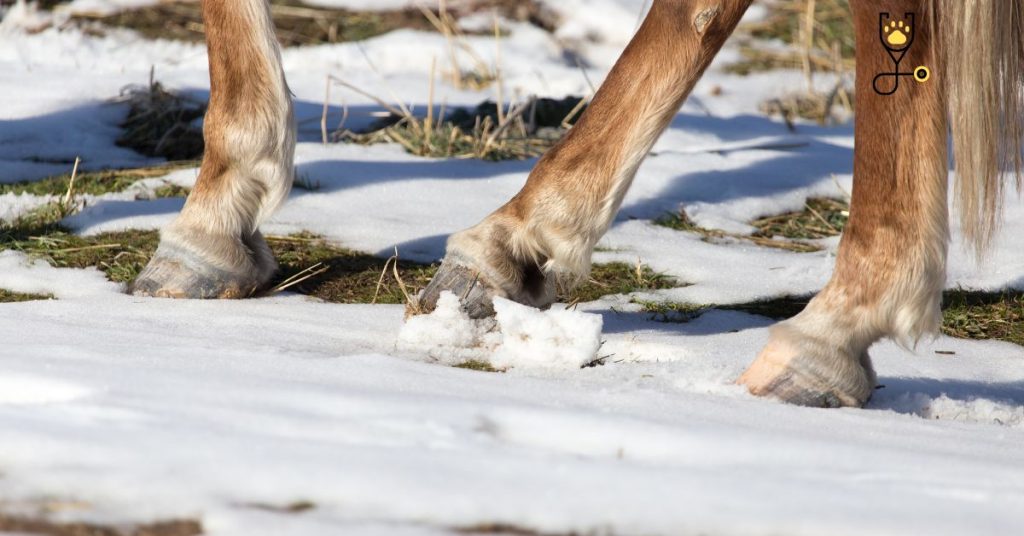
12. Wearing Reflective Gear
If you plan on doing any nighttime riding during the winter, make sure that both you and your horse are wearing reflective gear in order to be visible while on the roads.
13. Keeping Up With Vaccinations
Make sure your horse is up to date on all of its vaccinations in order to protect them from any potential illnesses or diseases that may arise in the colder months.
14. Protecting From Mud And Ice
Mud and ice can cause a variety of problems for horses, such as thrush and other skin issues. Be sure to check areas where mud and ice accumulation are common and take steps to prevent it from affecting your horse’s health.
15. Establishing a Winter Exercise Routine
Make sure you are providing enough exercise for your horse during the winter, as this can help to keep them healthy and in good physical condition. Be sure to adjust your routine according to the weather conditions, so that your horse can get the best possible workout in any situation.
16. Keeping an Eye Out for Changes in Behavior
Monitor your horse’s behavior and make note of any changes that may be indicative of illness. Pay close attention to their eating habits, movement, and overall demeanor in order to detect any potential health issues early on.
Final Conclusion
The winter months can often present unique challenges when it comes to taking care of horses. From providing warm water and forage to monitoring the weather, hoof health, vaccinations, and more – there are many things that need to be taken into consideration when it comes to keeping your horse safe and healthy during the colder season. By following these steps and paying close attention to any changes in behavior or health, you can make sure that your horse well cares for all year long!
Frequently Asking Questions
Q: What are some important winter horse care tips?
A: Some of the most important winter horse care tips include monitoring the weather, preventing frostbite, monitoring hoof health, wearing reflective gear, keeping up with vaccinations, protecting from mud and ice, establishing a winter exercise routine, and keeping an eye out for changes in behavior.
Q: How can I prevent frostbite on my horse?
A: To prevent frostbite on your horse it is important to check for any signs of discoloration or redness on their skin, particularly around the ears and hooves. It is also important to provide adequate shelter that can protect your horse from cold temperatures and winds. Additionally, make sure you are providing warm water and forage to help keep your horse warm.
Q: How can I make sure my horse’s hooves stay healthy during the winter?
A: It is important to regularly inspect your horse’s hooves and provide necessary treatments, such as regular trimming or supplementation, to keep them healthy. Additionally, try to avoid walking on hard or freezing surfaces as this can cause their hooves to come brittle and dry, leading to cracking and chipping. Finally, it is also important to make sure your horse’s hooves have adequate moisture to prevent them from becoming brittle. Consider using a hoof lubricant or moisturizer on your horse’s hooves during the winter months.
Q: What should I do if my horse shows signs of illness?
A: If you notice any changes in your horse’s behavior or health, it is important that you contact a veterinarian as soon as possible to address the issue. Doing so can help ensure that any potential illnesses and diseases are identified early on and treated properly. Additionally, be sure to keep up with all of your horse’s vaccinations in order to protect them from any potential illnesses or diseases that may arise during the winter months.
Q: What is a good winter exercise routine for my horse?
A: Depending on your horse’s age and level of conditioning, there are a few different types of exercises that can be done in order to keep them fit during the winter months. These can include long walks, low-intensity jogging or trotting, hill work, or even swimming if you have access to a pool. Additionally, cross-training with other activities such as obstacle courses and ground poles can help increase strength and flexibility while providing an interesting challenge for your horse! Just remember to keep safety in mind when exercising your horse in the cold weather – reduce the intensity of their workouts if needed and make sure they have access to plenty of warm water and nutritious food.
Q: How can I make sure my horse stays visible in the winter?
A: To ensure your horse is visible during the colder months, consider using reflective gear such as bright-colored sheets or blankets. Additionally, make sure your horse has been fitted with a breakaway horseshoe that contains reflectors to help alert drivers of their presence. Finally, it’s always a good idea to keep an eye on traffic and be prepared to pull your horse off of the road if necessary.
